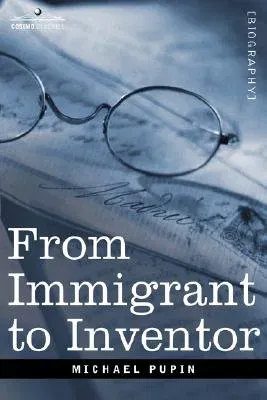As I sat on the deck of the ship which was taking me to the universities
of Europe, and watched its eagerness to get away from the busy harbor of
New York, I thought of the day when, nine years before, I had arrived on
the immigrant ship. I said to myself: "Michael Pupin, the most valuable
asset which you carried into New York harbor nine years ago was your
knowledge of, and profound respect and admiration for, the best
traditions of your race...the most valuable assets which you are now
taking with you from New York harbor is your knowledge of, and profound
respect and admiration for, the best traditions of your adopted
country." Michael Pupin's was a genuinely American story, the lifelong
journey of a boy from rural Serbia, from a town so tiny it appeared on
no maps, who became one of the greatest scientists of the early 20th
century, changing the lives of people the world over with his
technological innovations-he invented the therapeutic X-ray and made
telephone communications practical and inexpensive-and helping to invent
the modern world we know today. First published in 1922, Pupin's
autobiography won the Pulitzer Prize in 1924, but Pupin's insightful and
incisive words are their own greatest recommendation. Also available
from Cosimo Classics: Pupin's The New Reformation. American physicist
and writer MICHAEL IDVORSKY PUPIN (1858-1935) was born in Serbia and
emigrated to the United States as a teenager. As a professor and
researcher at Columbia University, he invented sonar and made important
discoveries in the fields of X-ray physics and telecommunications.


